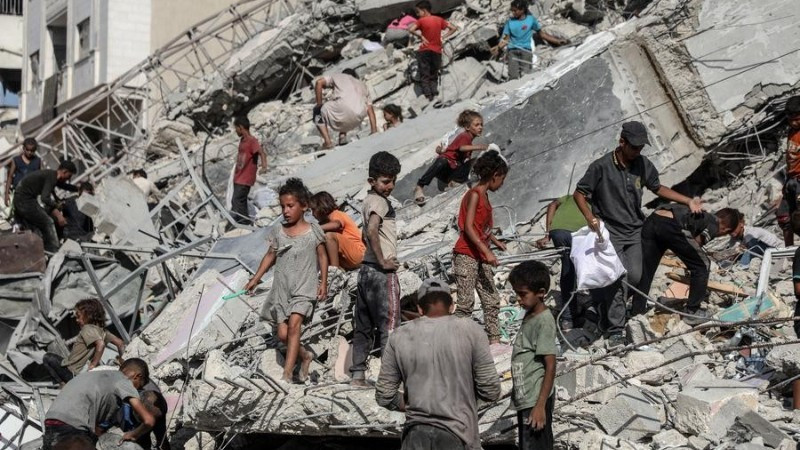Spain’s announcement came amid the ongoing war in the Mediterranean coastal enclave, with no end in sight. Prime Minister Pedro Sanchez unveiled nine measures aimed at ending what Madrid calls the “genocide in Gaza”, including an arms embargo on Israel and a ban on fuel tankers for the Israeli military from docking at Spanish ports. The Spanish head of government justified these steps as an effort to end the humanitarian crisis engulfing people in the Gaza Strip.
Prime Minister Sanchez strongly asserted that those directly involved in genocide, human rights violations, and war crimes in Gaza would be banned from entering Spain. In retaliation, Israeli Foreign Minister Gideon Saar announced reciprocal measures against senior Spanish officials, including Deputy Prime Minister Yolanda Diaz and Minister for Youth and Children Sira Rego, both members of Sanchez’s ruling coalition.
Maintaining its uncompromising stance, Spain declared a ban on the import of goods from illegal settlements in Palestinian territories, opposing the forced displacement of Palestinians from their homes. Madrid also restricted consular services for Spanish citizens residing in what it considers illegal Israeli settlements in Palestinian territories.
On the other hand, Prime Minister Sanchez announced new cooperation projects on agriculture, food security, and medical support for the Palestinian Authority, along with additional humanitarian aid for people in the territory.
The Spanish government’s tough stance immediately drew sharp reactions from Israel. Minister Saar accused the Spanish Prime Minister of seeking to divert public opinion with an anti-Israel and antisemitic campaign. In response, the Spanish Ministry of Foreign Affairs issued a statement rejecting Tel Aviv’s accusations, stressing that Madrid would not be subdued in its efforts to defend peace, international law, and human rights. Spain promptly recalled its Ambassador in Tel Aviv to protest against the restrictive measures imposed by Israel on its officials.
Swiss healthcare workers staged a hunger strike outside Parliament on September 8, urging Swiss authorities to adopt a tougher stance on Israel’s treatment of civilians in Gaza. Expressing solidarity with the protesters, Swiss Foreign Ministry spokesperson Nicolas Bideau stated that Switzerland was deeply concerned about the humanitarian situation in Gaza and called on all parties involved to ceasefire and respect international humanitarian law.
Meanwhile, more than 1,800 actors, artists, and producers, including Hollywood stars, signed a pledge not to collaborate with Israeli film organisations they accuse of complicity in the mistreatment of Palestinians.
Responding to a call from the Embassy of the Palestinian Authority in Hungary, hundreds attended a candlelight vigil in Budapest to commemorate over 20,000 children killed in the Gaza conflict. The ceremony was not only an occasion to honour the victims, but also a powerful call for justice and peace for the Palestinian people in the Gaza Strip.
Mutual retaliatory actions, “pouring oil on the flames”, have plunged relations between Spain and Israel deeper into a diplomatic crisis. Amid the unresolved conflict with the Hamas movement, intensifying tensions with Iran, and the Houthi forces, the strained relationship with Spain has added yet another headache for Israel.
















